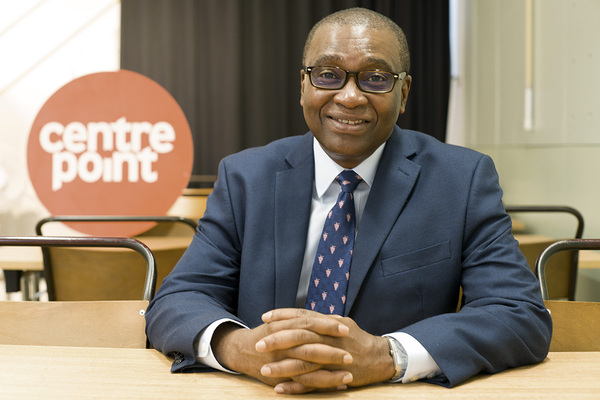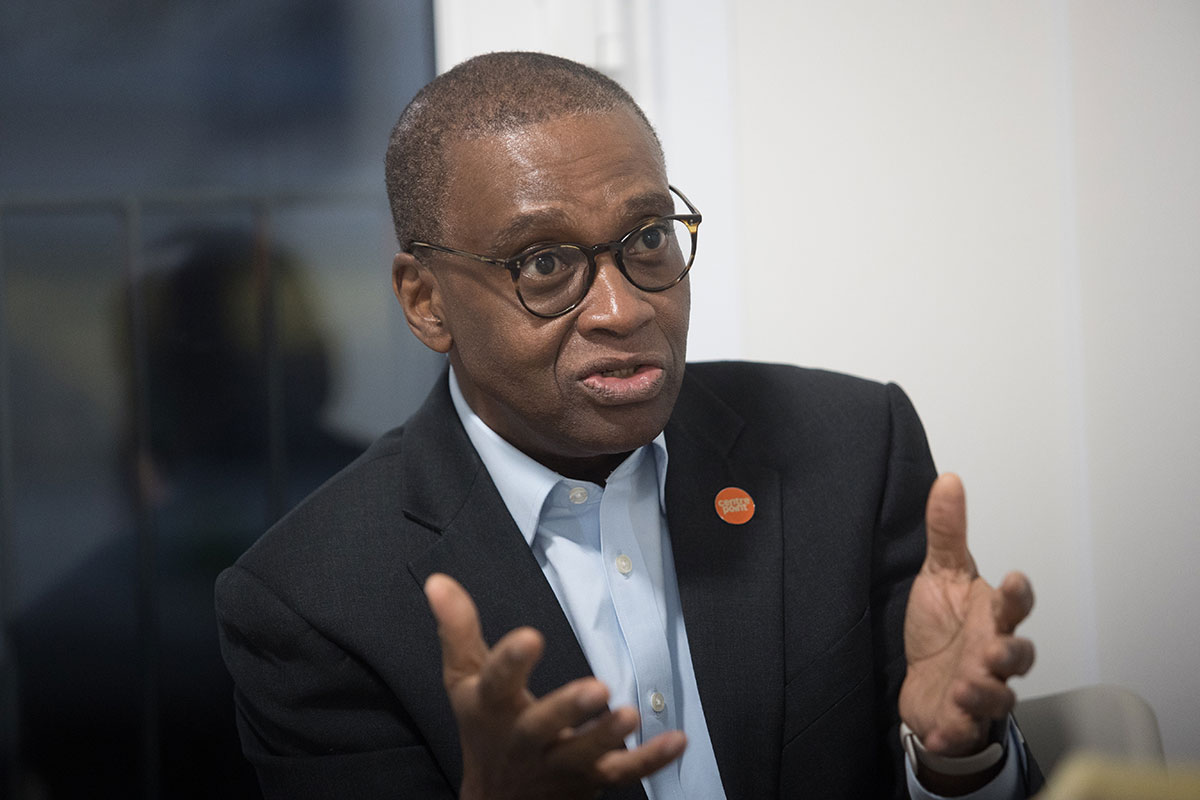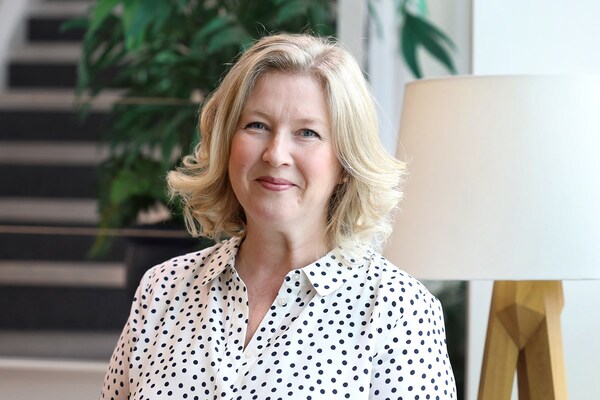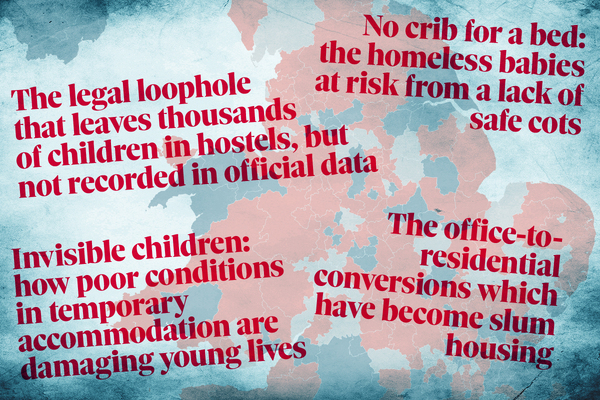You are viewing 1 of your 1 free articles
Centrepoint CEO Seyi Obakin: ‘The dial will turn, we just need to keep going’
After 20 years at the UK’s leading youth homelessness charity, Centrepoint chief executive Seyi Obakin tells Katharine Swindells about the political ups and downs, and how to measure success. Photography by Belinda Lawley
Has Centrepoint had a good year? It is only the first question of our interview, but chief executive Seyi Obakin pauses and looks thoughtful. “I’m conflicted in answering that question,” he says.
Well, it has supported more than 16,000 homeless young people and provided supported beds for more than 800. And it launched Reuben House, its Peckham-based independent living project, which was opened by Prince William in the summer. But, he says, in terms of the organisation’s purpose – to end youth homelessness – 2023 has taken the country in the wrong direction. Centrepoint’s stats show youth homelessness has hit 136,000, up 5% annually. Meanwhile, its helpline is now averaging more than 40 calls a day (see chart, below).
‘Fascination’ with housing
But Mr Obakin has learned to think in terms of more than a single year. In his 20 years at Centrepoint, there have been two recessions and a pandemic, all of which have had a detrimental impact on youth homelessness. He has seen five general elections and seven prime ministers (don’t bother counting the housing ministers). He has overseen the organisation through its 40th and 50th anniversaries, been awarded an OBE, and spent a December night in 2009 sleeping rough with Prince William.
But how does this longevity shape the way Mr Obakin sees Centrepoint’s purpose as the UK’s leading youth homelessness charity, and its relationship to politics? And how is two decades of experience shaping his strategy ahead of the general election next year?
Mr Obakin is good-humoured, even after a freezing photoshoot in the courtyard of Reuben House, in the last of the November afternoon daylight. Now, warming up in one of Reuben House’s unoccupied flats, he is outspoken, as expressive with his hands as with his words; a big presence across the small kitchen table.
An accountant by trade, Mr Obakin was born and raised in Nigeria, and moved to the UK in the 1990s with his British-born wife. They now live in Sutton with their youngest child. He worked in banking for Citibank and BNP Paribas, before moving into finance roles for housing associations (see CV box, below).
Mr Obakin says he has always had a “fascination” with housing. “A home is what gives you the opportunity to build in life. A home gives you a sense of place, the opportunity to settle, to build your own network, your family. If you haven’t got a home, it’s really hard to do all those things. It has always seemed to me that a home is pivotal to life chances.” He joined Centrepoint in 2003, first as finance director, then chief operating officer, before taking on the top job in 2009.
He also spent almost a decade on the government’s Social Security Advisory Committee (SSAC), advising the secretary of state for work and pensions, contributing to work on Universal Credit and support measures during the pandemic. When he stepped down last summer, he wrote that he was “convinced that the SSAC is one of the most important unheralded groups in the UK”.
More recently, he became chair of the board of Youth Futures Foundation, a non-profit that works to improve employment outcomes for young people from marginalised backgrounds. Barry Fletcher, its chief executive, says that Mr Obakin has been a “hugely positive and galvanising force”.
“He is committed to improving the life stories of these young people, and drives us to use our unique position to make a real and tangible difference,” he says.
Seyi Obakin’s CV
Executive roles
2009 to present: chief executive, Centrepoint
2003 to 2009: chief operating officer and formerly finance director, Centrepoint
1995 to 2003: various roles at housing associations, including Housing 21 and Metropolitan Thames Valley
1988 to 1995: corporate banking roles, Citibank and BNP Paribas
1983 to 1988: audit manager, PwC
Other
2016 – awarded an OBE for services to youth skills, employment and homelessness
2022 to present: chair, Youth Futures Foundation
2020 to present: member (audit committee), London Fire Brigade
2018 to 2021: non-executive director (audit and risk assurance committee), HM Prison and Probation Service
2014 to 2023: member, Social Security Advisory Committee
In his early days at Centrepoint, Mr Obakin worked with then-chief executive Anthony Lawton to re-evaluate the organisation’s purpose. “We began to ask ourselves the question: what is Centrepoint for? Should it be an arm’s-length body of the state, just executing government contracts to the specification of the state? Or should it be a charity that is about people?”
Centrepoint opted for the latter. And, Mr Obakin says, this was a good decision, as he reflects on the recent remarks by Suella Braverman in her last days as home secretary that street homelessness is a “lifestyle choice”. He calls such rhetoric a significant “backwards step”.
Instead he sees Centrepoint’s relationship with the government as secondary. “We base all of our decisions on what we think is right for young people, and the vision that we have. That’s our starting point,” he says.
“Once we do that, then we say, ‘In what ways can we fit what the government is doing into these things?’ And if we can’t, are there ways we can persuade the government to do some things that might fit into this?”
That can be difficult, though, when government policy often seems to focus on preventing, or even reversing the work of Centrepoint. “It is unhelpful when you’ve got one raft of government policy pulling in one direction, and then you’ve got another raft of government policy pulling in the opposite direction.”
For example, he explains, Centrepoint has been pushing for years to change how the benefit taper rate and work allowances disincentivise young people from working, to little avail. He says that the cuts to support in the austerity years, and the government’s lack of spending on social housing, are having a direct impact on the country’s economy. Research this year by Centrepoint with the Institute of Business and Economic Research found that youth homelessness is costing the UK £8.5bn per year, not just in unemployment and productivity, but also across other sectors such as criminal justice and substance misuse. “We’ve got to keep making those arguments here now, that if we spend money preventing it from happening, we might be better off not just societally but also economically, as it would boost our GDP.”
Relationship with government
Mr Obakin knows from past experience that trying to get the government to act on these arguments can be an arduous mission. He reflects on the early years of the Conservative-Liberal Democrat coalition, when the government proposed that housing benefit should no longer be available to under-25s, with then-chancellor George Osborne saying it was “not acceptable for young people to go from school straight to benefits”. After campaigning from Centrepoint and others, this age cap was lowered, and then in 2018 fully U-turned, with housing benefit restored down to 18-year-olds.
“It’s hugely frustrating,” Mr Obakin says. “But we don’t have the luxury of allowing that frustration to get the better of us. The dial will turn, we just need to keep going.” His solution to that frustration is to balance the ambition to create nationwide change with the smaller wins: in individual projects and individual lives.
“We mustn’t forget that although our vision is to end youth homelessness, we also know there are young people who need that help right now,” he says. “So we’re very fastidious about what is happening for those young people that are in our care, and the ways in which we can help them to change their own stories.”
Take Centrepoint’s pre-16 prevention pilot in Manchester, for instance, which works in schools to identify young people who are at hidden risk of homelessness, and provides them with individualised support and family mediation. It plans to start replicating that work in London next year.
Similarly at Reuben House, 33 young people are offered income-linked rents for two years as a stepping stone to adulthood. Centrepoint’s objective is to build around 300 of these units in the next few years. “We have a pathway to do that, but 300 is a drop in the ocean for young people who need places to live. What would really be parting the ocean is to normalise it, so that it can be replicated on scale.”
“Youth homelessness is often described as hidden because of the invisible ways that young people experience it and for many years the issue has been hidden too, taking less priority over other forms of homelessness,” says Phil Kerry, chief executive of London youth homelessness organisation New Horizon Youth Centre. “But thanks to Seyi’s leadership of Centrepoint these past 20 years, the issue is no longer ignored and we all owe him a debt of gratitude for that.”
Mr Obakin worries about a “kind of fatalism” from politicians and policymakers, that if they think a problem is “too big, then it can’t be solved, so let’s just not go there”. He fears this kind of thinking will prevent the next government from taking on what he sees as their top priority: housing supply – building more homes and, specifically, more social homes.
Even more than that, he’d like to see a government that is willing to invest in prevention. The money is there – in housing benefit paid to private landlords and temporary accommodation hotel bills – it just requires a government with the confidence to spend to save.
“We have to move away from this model that says we can’t invest in things we can’t count,” he says. “We have to begin to take measures to prevent bad things from happening. And find a way of justifying spending money on stopping bad things from happening.”
It can be difficult for the former finance director not to obsess over the statistics, but Mr Obakin says that by staying focused on what is best for young people, and having faith in those actions, the results will follow.
“I live for the day when the numbers come down. And I think if we do the right things, it is possible,” he says.
Sign up for the IH long read bulletin
Already have an account? Click here to manage your newsletters













